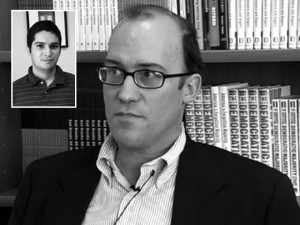Will Team Biden Weaponize Workers’ Pensions?
Big Labor abuse of worker pension and benefit funds as a means of advancing union bosses’ self-aggrandizing policy objectives is a familiar phenomenon.

Big Labor Academics Oppose Equal Protection For Right Not to Join
(source: National Right to Work Committee April 2012 Newsletter)
The National Labor Relations Act (NLRA), the principal federal law regulating employee-employer relations in America’s private sector, purports to uphold the right to “form, join or assist labor organizations” and also “the right to refrain from” forming, joining or assisting such organizations.
But the NLRA fails utterly to give equal protection to workers who don’t want a union.
For example, under the NLRA as interpreted by the courts, workers have only a nominal right not to join. As nonmembers, they don’t have the right to refuse to pay dues or fees to a union, and still keep their jobs, whenever union officials can obtain “exclusive” bargaining privileges.
On the other hand, the NLRA fully protects the freedom of employees who want a union to join and pay dues; it doesn’t matter at all if their employer and the majority of their fellow employees oppose unionization.
Pro-union employees cannot legally be fired or otherwise discriminated against for joining or financially supporting a union under any circumstances.
‘True Civil Rights Are Two-Way Streets’
Even though the NLRA obviously offers vastly greater protection for the right to join a union than it does for the right not to join, top union bosses and their academic allies recently launched a coordinated propaganda campaign blasting the law as insufficiently biased in Big Labor’s favor.
In a just-published campaign manifesto, union-label “think tanker” Richard Kahlenberg and union lawyer Moshe Marvit propose adoption of a new federal labor law making discrimination against employees for union activities and membership legally equivalent to racial, ethnic or gender discrimination.
Their goal is to intimidate employers into passive submission to unionization of their employees by making them potentially subject to massive civil penalties if they resist.
In their eagerness to expand Organized Labor’s power, Mr. Kahlenberg, Mr. Marvit, and the union officials who have already endorsed their book (entitled Why Labor Organizing Should Be a Civil Right) try to evade an obvious point, noted National Right to Work Committee Vice President Greg Mourad.
“True civil rights,” Mr. Mourad pointed out, “are two-way streets.
“The First Amendment, for example protects both the ‘right to speak freely’ and the ‘right to refrain from speaking at all,’ as the U.S. Supreme Court explained nearly 70 years ago in West Virginia State Board of Education v. Barnette.
“If joining a union and unionizing your fellow employees are civil rights, then refusal to join a union or accept it as your ‘exclusive’ bargaining agent should receive equal protection under the law.”
Mr. Kahlenberg and Mr. Marvit ‘Should at Least Be Honest’
While the Kahlenberg-Marvit book had not yet been published as this month’s Newsletter was being written, Mr. Kahlenberg supplied a National Right to Work Committee staffer with an excerpt that made it clear he and Mr. Marvit have no intention of revoking union officials’ statutory forced-unionism privileges.
Specifically, in the labor-law overhaul they envision, Big Labor would retain the privilege to force individual employees who don’t want a union to accept one as their “exclusive” bargaining agent. Union officials’ power to exact forced fees from union nonmembers would also be perpetuated.
“The union bosses and their apologists effectively regard employees who don’t want a union as second-class citizens,” charged Mr. Mourad.
“Of course, they are less blunt about it nowadays than they were in the past.
“Back in 1948, a union legal brief to the U.S. Supreme Court simply asserted ‘there is no constitutional right to work as a non-unionist,’ but at the same time ‘the right to maintain employment free from discrimination because of union membership is constitutionally protected.’
“The view that there is a civil right to join a union, but no equivalent right not to join a union was summarily rejected by a unanimous High Court in January 1949. Nevertheless, Richard Kahlenberg and Moshe Marvit are free to hold it if they wish. In that case, they should at least be honest about it.”

Big Labor abuse of worker pension and benefit funds as a means of advancing union bosses’ self-aggrandizing policy objectives is a familiar phenomenon.

Leaked CTU Proposals Won’t Do Anything to Improve Schools’ Poor Performance

What impact does handing a union monopoly power to deal with your employer on matters concerning your pay, benefits, and work rules have on your pay?